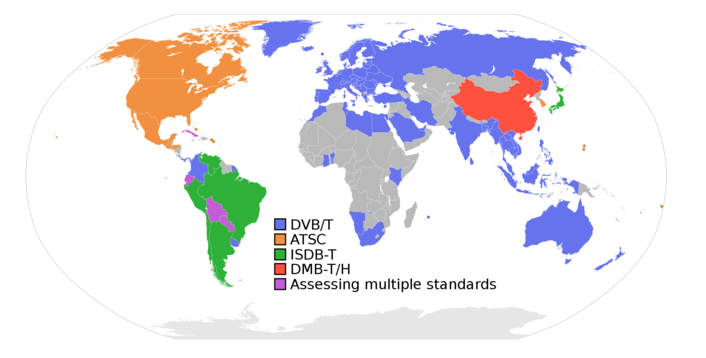Spectrum policy should respect diversity, guarantee quality and use resources efficiently
posted:
The main way to guarantee universal access to radio and TV services
"EU spectrum policy needs to respect diversity; allow for different local, regional and national perspectives; guarantee quality of service; use spectrum efficiently. This must apply to both broadcast and broadband," said Lieven Vermaele, Director of the EBU’s Technical Department, and one of the speakers at the summit.
The digital terrestrial broadcasting platform is successful with a growing number of viewers. In many countries it is still, and will remain in the future, the main way to guarantee universal access to radio and TV services for fixed, mobile and portable devices. No other single platform can replicate these benefits.
Broadband networks must be universally available and open
Broadcasters need adequate spectrum to deliver DTT. The UHF band is the only spectrum which can accommodate the evolving needs of terrestrial broadcasting. Any further reduction of the available spectrum for terrestrial broadcasting beyond the 800MHz band would have negative consequences for viewers and broadcasters as well as for the associated industries. This due to increased interference levels, decreased coverage, fewer services and reduced opportunity for future developments, for example of HD, 3DTV and 'pushed VoD'.
EU audiences expect audiovisual material to be delivered on all platforms, including broadband.
"To support the EU audiovisual policy objectives, broadband networks must be universally available and open, and must guarantee coverage and quality of service for all users too. Rural broadband that relies only on digital dividend spectrum would be poor, unable to provide high quality of media services and ultimately lead to 'second-class broadband' in the EU," said Mr Vermaele.
advertisment
Broadcasting and broadband are complementary
There are extensive opportunities for wireless broadband in other frequency bands which are already allocated and still under-used. Capacity bottlenecks which are common in today's wireless broadband networks can be avoided if the most advanced broadband technology is implemented.
Broadcasting and broadband are therefore complementary and both will be needed in the future. The EU spectrum policy should facilitate their future development and provide clarity and regulatory certainty, whilst applying the provisions of the 'Telecom Package'.
"If all parties respect diversity, guarantee quality and use resources efficiently, European citizens will have the service they need and deserve. Europe will have an innovative and connected future with competitive and vibrant audiovisual and telecommunications industries," concluded Mr Vermaele.


